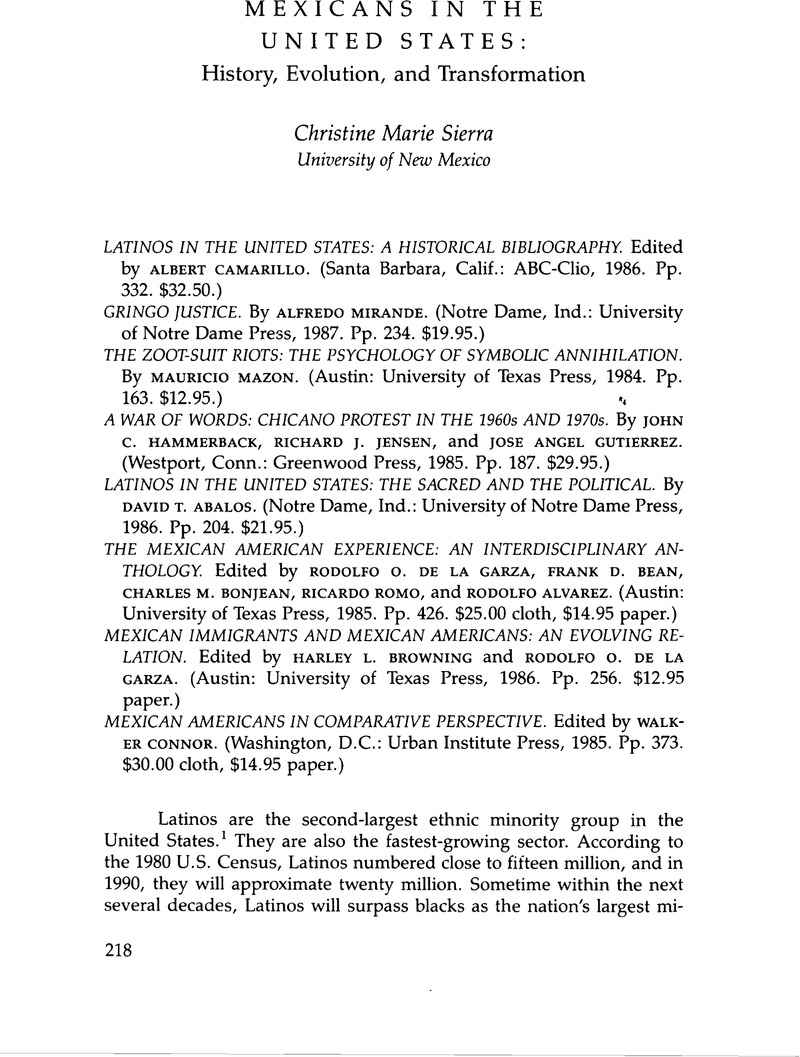No CrossRef data available.
Published online by Cambridge University Press: 12 October 2022

1. The term Latino is used interchangeably with the term Hispanic to refer to all Spanish-origin groups in the United States. The terms Mexican American and Chicano are used interchangeably to refer to individuals of Mexican origin in the United States.
2. A good overview of the Latino population that emphasizes subgroup differences is found in Joan Moore and Harry Pachon, Hispanics in the United States (Englewood Cliffs, N.J.: Prentice-Hall, 1985).
3. See Felix M. Padilla, Latino Ethnic Consciousness: The Case of Mexican Americans and Puerto Ricans in Chicago (Notre Dame, Ind.: University of Notre Dame Press, 1985); and Padilla, “On the Nature of Latino Ethnicity,” in The Mexican American Experience: An Interdisciplinary Anthology, 332–45, one of the books included in this review.
4. In particular, the Alinsky-style social action organizations in Los Angeles, California (United Neighborhoods Organization) and San Antonio, Texas (Communities Organized for Public Service) have enjoyed tremendous success. They emphasize politics, family, and religion in their endeavors. For more information on this topic, see Harry C. Boyte, Community Is Possible: Repairing America's Roots (New York: Harper and Row, 1984), especially chap. 5 on “empowerment.”